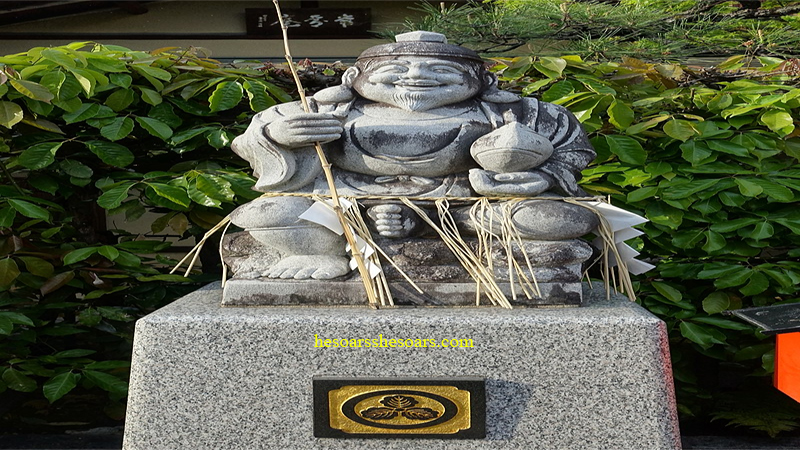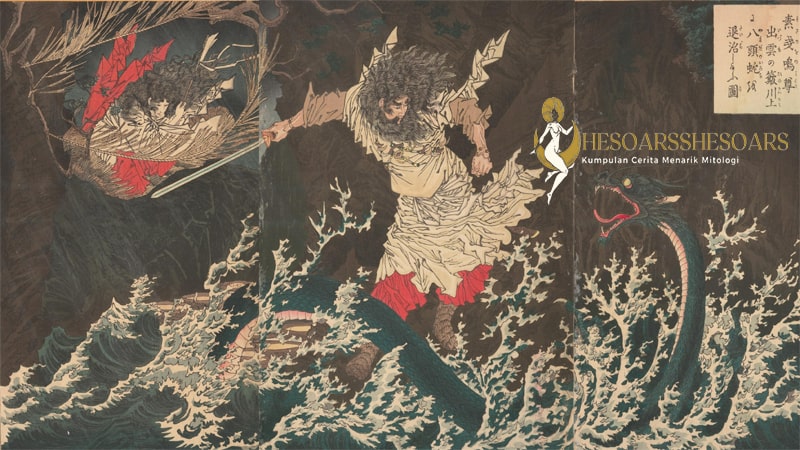Japanese mythology is a rich tapestry of stories. Gods. And mystical creatures that has. Been. Told and. Retold for thousands of years. One of the most fascinating deities in Japanese mythology is Ebisu. Known as the god of luck and the bounties of the sea. In this article. We will delve deeper into the myths and stories surrounding the god Ebisu in Japanese culture.
Who Is Ebisu God?
Ebisu is one of the Seven Lucky Gods in Japanese mythology. Often depicted as a cheerful and good-natured deity. He is primarily. Associated with fishermen. And is. Revered as. The god of good fortune. Wealth, and prosperity. Particularly in business and commerce.
Ebisu is typically. Portrayed as a plump. Bearded man with a fishing rod in one hand and a large red sea bream fish (known as tai) in the other. He is often. Seen dressed in. Traditional Japanese. Clothing and. Is. Known. For his infectious smile. This representation of Ebisu is a symbol of happiness and abundance.
The Origins of Ebisu God
The origin of Ebisu is somewhat mysterious and has evolved over centuries. Some theories. Suggest that he. Is an indigenous Japanese deity. While others believe he. May have been. Influenced by foreign gods or deities.
One of the most popular theories is that Ebisu is a Japanese adaptation of the Buddhist deity Daikokuten, the god of wealth and prosperity. Daikokuten is often. Depicted holding. A mallet. And a bag of treasures. Both of which. Are. Associated with. Ebisu in Japanese folklore. Over time. The two deities may have merged. Leading to the creation of Ebisu.
Another theory suggests that Ebisu’s name may have been derived from the Japanese word “ebi,” which means “shrimp” or “lobster.” These crustaceans were considered a valuable source of food in ancient Japan. And their association with Ebisu could signify his role as a provider of sustenance.
Ebisu’s God Attributes and Symbols
Ebisu is closely linked to the bounties of the sea, which is evident in his association with fishing and maritime activities. In addition to his iconic tai fish, Ebisu is often depicted with other maritime symbols. Such as a fishing net. A fishing rod. Or a fishing boat. These symbols emphasize his role as a protector of fishermen and a source of prosperity from the sea.
One of the most distinctive symbols associated with Ebisu is the “Kaiun Rokkakubai,” a group of six lucky symbols. These symbols include a turtle. A treasure mallet, a key, a sea bream, a folded napkin, and an auspicious rope. Ebisu is frequently depicted holding one or more of these symbols, signifying his power to bestow good fortune and wealth upon his devotees.
Ebisu’s Role in Japanese Culture
Ebisu is a beloved figure in Japanese culture and is considered one of the most approachable and friendly of the Seven Lucky Gods. He is particularly popular among fishermen, merchants, and businesspeople, who seek his blessings for a successful catch, profitable trade, and financial success.
Ebisu is also a central figure in the annual celebration of Oshogatsu, the Japanese New Year. During this time, families display a set of Seven Lucky Gods, including Ebisu, in their homes to ensure good fortune and prosperity for the year ahead. Devotees often visit shrines dedicated to Ebisu to offer prayers and seek his blessings.
The Legend of Ebisu
While there is no single comprehensive myth or legend associated with Ebisu, there are several stories and anecdotes that highlight his benevolence and positive influence on people’s lives.
One popular tale recounts how Ebisu lost his father and mother at a young age but was raised by sea creatures, including turtles and sea breams. These creatures nurtured him and protected him from harm, instilling in him a deep connection to the sea and its treasures. This story emphasizes Ebisu’s role as a guardian of the sea and its bounty.
Another legend tells of Ebisu’s miraculous fishing abilities. In this story, Ebisu was able to catch an enormous tai fish even when all other fishermen had failed. This incredible catch symbolized his divine power to provide sustenance and prosperity from the sea.
Conclusion Ebisu God
Ebisu, the enigmatic god of luck and abundance, holds a special place in Japanese mythology and culture. His cheerful demeanor, association with the sea, and role as a symbol of good fortune have endeared him to generations of Japanese people. Whether as a protector of fishermen or a giver of wealth, Ebisu remains a beloved figure whose blessings are sought after by many, making him an enduring icon in the tapestry of Japanese mythology.




